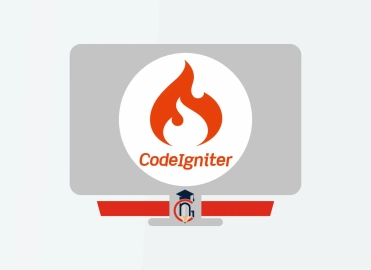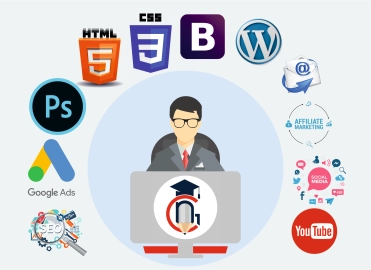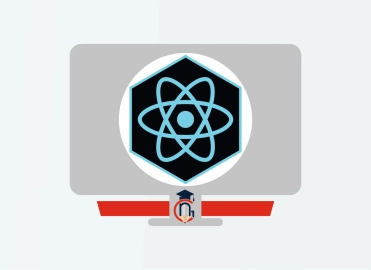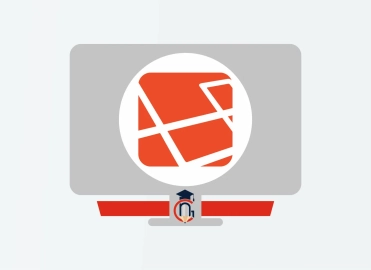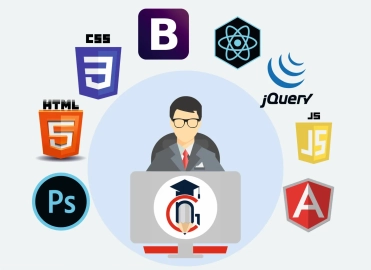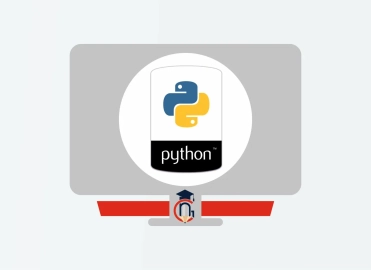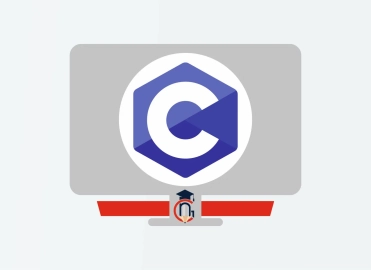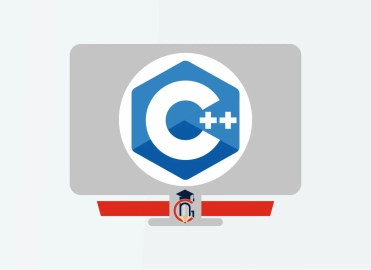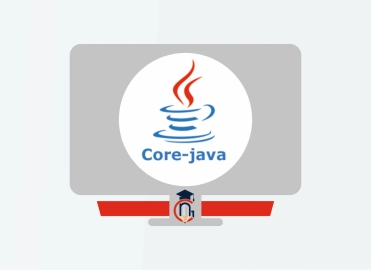Node JS
| Training Mode | Regular | Fastrack | Crash |
|---|---|---|---|
| Classroom | Online | 45 Days (M,W,F or T,T,S Class) (3 Class in a week) |
25 Days (Monday to Friday Class) (5 Class in a week) |
15 Days (Monday to Friday Class) (5 Class in a week 1:30 hour duration) |
Module 1: Asynchronous Programming and Event-Driven Architecture
- Understanding the Node.js event loop and non-blocking I/O.
- Advanced use of Promises, async/await for managing asynchronous operations.
- Implementing event-driven programming using EventEmitter.
Module 2: Building RESTful APIs with Express.js
- Advanced routing and middleware usage in Express.js.
- Implementing authentication and authorization with Passport.js.
- Handling errors and exceptions in Express.js applications.
- Testing Express.js applications using tools like Jest and Supertest.
Module 3: Real-Time Communication with Socket.IO
- Implementing real-time features with WebSocket and Socket.IO.
- Handling bi-directional communication between client and server.
- Building a real-time chat application with Socket.IO.
Module 4: Data Handling and Persistence
- Working with SQL and NoSQL databases (MySQL, MongoDB).
- Implementing data models and schemas with Mongoose (for MongoDB).
- Using Sequelize ORM (for SQL databases) for data manipulation.
Module 5: Microservices Architecture
- Understanding microservices vs. monolithic architecture.
- Design principles and communication patterns (RESTful APIs, messaging).
- Containerization with Docker and orchestration with Kubernetes.
- Implementing service discovery and load balancing.
Module 6: Performance Optimization and Scalability
- Techniques for optimizing Node.js performance.
- Caching strategies with Redis.
- Scaling Node.js applications horizontally and vertically.
- Load testing and performance monitoring using tools like Apache JMeter or New Relic.
Module 7: Security Best Practices
- Securing Node.js applications against common vulnerabilities.
- Implementing HTTPS, JWT for authentication, and OAuth for authorization.
- Preventing attacks like CSRF, XSS, and SQL Injection.
- Using security auditing tools like npm audit and OWASP ZAP.
Module 8: Deployment and DevOps
- Continuous integration and deployment (CI/CD) pipelines for Node.js applications.
- Deploying Node.js applications on cloud platforms (AWS, Azure, GCP).
- Monitoring and logging strategies using ELK stack (Elasticsearch, Logstash, Kibana).
- Managing application lifecycle with tools like PM2.
Module 9: Advanced Topics
- Implementing GraphQL APIs with Apollo Server.
- Serverless architectures with AWS Lambda and Serverless Framework.
- Integrating third-party APIs and services.
- Exploring emerging trends and future directions in Node.js development.
This Advanced Node Js Course at Next G Classes, participants will possess the skills and knowledge necessary to design, develop, deploy, and maintain robust and scalable Node.js applications. They will be equipped with industry-relevant tools and practices to tackle complex challenges in modern web development and contribute effectively to Node.js projects in professional settings.
Contact Us
Course Feedback
Student Projects
-
.png)
Name : Manish Bharti
Course : Web Designer
Project : Mindx
Guided By : Rajesh Sir
-

Name : Manish Bharti
Course : Web Designer
Project : Light Basket
Guided By : Rajesh Sir
-

Name : Sakesh Kumar
Course : Web Development
Project : Delhi Hospital
Guided By : Rajesh Sir
-

Name : Vikash Kumar
Course : Full Stack Developer
Project : PS Health Care
Guided By : Rajesh Sir
-

Name : Bablu Kumar
Course : Web Developer
Project : Mudra Cash for Gold
Guided By : Rajesh Sir
-

Name : Manish Bharti
Course : Web Designer
Project : vedicessentials
Guided By : Rajesh Sir
-

Name : Guddu Kumar
Course : Advance Full Stack Developer Expert
Project : MPSswitches
Guided By : Rajesh Sir
-

Name : Guddu Kumar
Course : Advance Full Stack Developer Expert
Project : Palco
Guided By : Rajesh Sir

